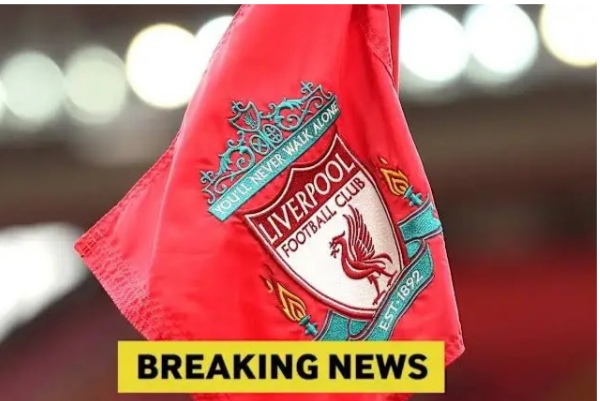Football is often called the beautiful game, but behind the passion, the goals, and the glory, it is also a massive business, one where money flows at levels that can make the ordinary fan’s jaw drop. One of the clearest examples of this truth is what has happened with Erik ten Hag, the Dutch coach who, within just 10 months, has reportedly received a staggering £19.5 million in compensation after being dismissed by two different clubs — Manchester United and Bayer Leverkusen.
At first glance, the figure almost seems surreal. Nearly £20 million, not for winning a league title, not for guiding a team deep into the Champions League, but for essentially losing jobs. It’s a reminder of how modern football contracts work, why clubs often pay heavy prices when projects don’t succeed, and how managers at the top level operate in an entirely different financial universe from the average worker. Let’s break down what this means and why it has become such a talking point.
The Manchester United Chapter
When Erik ten Hag was appointed at Old Trafford, hopes were sky-high. Coming in after a turbulent period post-Sir Alex Ferguson, the Dutchman was seen as a disciplined tactician capable of instilling order in a chaotic United side. He delivered immediate progress too — winning the Carabao Cup, ending the club’s six-year trophy drought, and securing Champions League football.
But football is a results-driven business, and United’s performances quickly declined. Key players struggled, high-profile signings under his watch (such as Antony) failed to justify their price tags, and tension reportedly grew within the dressing room. The pressure mounted as rivals surged ahead, leaving United inconsistent both in domestic and European competition.
Eventually, the club decided to cut ties. But as is standard in football, dismissal didn’t just mean Ten Hag walked away. His contract ensured that he would receive a significant payout — compensation for the early termination of his deal. That alone reportedly cost United a major sum.
A Fresh Start in Germany — That Didn’t Last
After leaving Old Trafford, Ten Hag’s reputation wasn’t completely shattered. In fact, Bayer Leverkusen, always ambitious in their pursuit of becoming a consistent European force, decided to take a gamble on him. They brought him in, hoping his tactical structure and experience at Ajax — where he made a name for himself by reaching the Champions League semifinals — would translate well in the Bundesliga.
But things once again didn’t unfold as planned. Results weren’t consistent enough, the team lacked fluidity, and in a league where margins are slim, patience quickly evaporated. Just months into the project, Leverkusen too decided to part ways. Once again, Ten Hag’s contract terms meant that he was entitled to a hefty compensation package for the premature termination of his tenure.
And thus, within less than a year, the Dutchman found himself not only jobless but also wealthier by nearly £20 million in combined payouts.
Why Do Clubs Pay So Much in Compensation?
This is the part that often frustrates and confuses fans. Why can’t clubs just fire a manager like any ordinary company might dismiss an employee? The answer lies in how football contracts are structured. Managers at top clubs don’t sign casual agreements; they sign binding, multi-year contracts with guaranteed salaries.
If a club decides to end the deal early, they are legally obliged to pay out the remaining value or a negotiated portion of it. The logic behind this is to protect managers. After all, football is a volatile profession — a string of bad results, injuries, or even dressing room unrest can sink a project quickly. Without these protections, coaches would be far too vulnerable.
Clubs, on the other hand, often agree to such terms because they’re desperate to secure a manager they believe in. It’s a gamble: if the coach succeeds, the club thrives; if not, the financial penalties are massive.
The Bigger Picture – Football’s Money Madness
Ten Hag’s £19.5 million compensation package is eye-catching, but it’s not entirely unprecedented. Other managers have pocketed huge payouts after being dismissed. José Mourinho, for example, famously earned more than £15 million when sacked by Manchester United and also walked away with big cheques after leaving Chelsea and Tottenham. Antonio Conte has had similar fortune.
What makes Ten Hag’s case striking is the speed. In just 10 months, he has received a sum that would take an average Premier League player years to earn, and a regular worker an entire lifetime. It highlights the scale of money in football and the risks clubs take when things don’t work out.
What Next for Ten Hag?
The big question now is about the Dutchman’s future. Having endured two sackings in quick succession, his reputation has taken a dent. Still, he is a respected coach, especially for his achievements with Ajax, where he blended youth and tactical innovation to create a team that captivated Europe.
Whether he takes some time off or dives back into management immediately will depend on the opportunities that arise. But one thing is certain — he will not be under any financial pressure. Nearly £20 million in less than a year provides more than enough cushion to step back, reassess, and plan his next move.
Lessons for Clubs
For Manchester United and Bayer Leverkusen, this saga also raises questions. Are clubs too quick to hire and fire? Should they structure contracts differently to avoid such costly payouts? Or is this simply the unavoidable cost of competing at the elite level, where decisions must be ruthless and money often flows like water?




